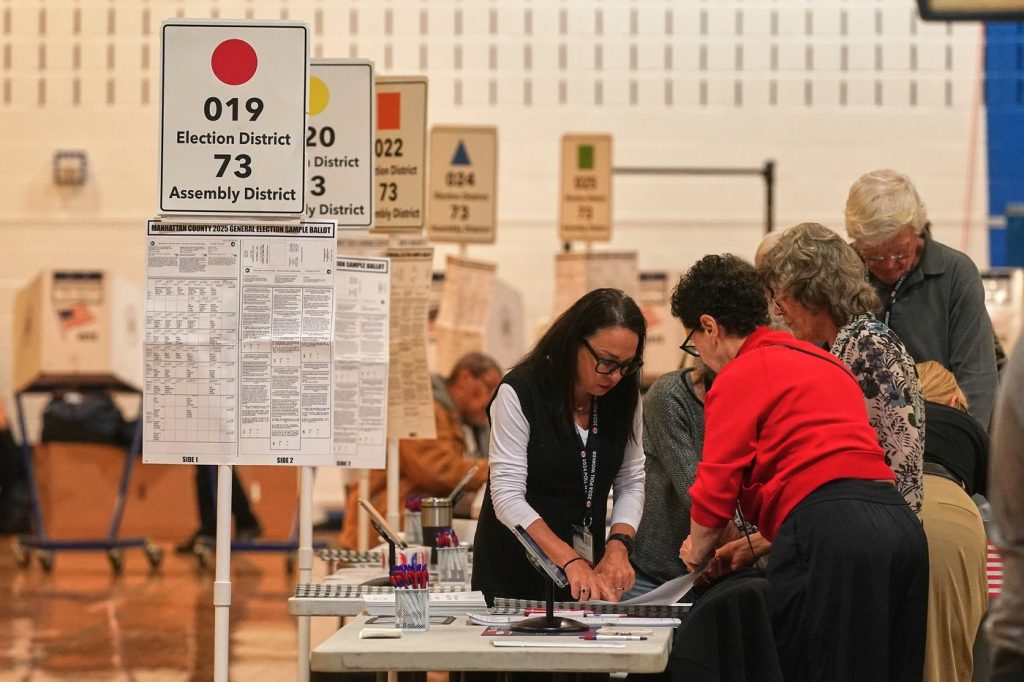PORTLAND, Ore. (AP) — In a significant development, ten Democratic secretaries of state voiced their concerns to the Trump administration regarding its extensive efforts to solicit statewide voter registration lists. In a letter directed to Attorney General Pam Bondi and Homeland Security Secretary Kristi Noem, the secretaries expressed their "immense concern" about reports suggesting that the Justice Department may have misled them and could be entering this voter data into a program used for verifying U.S. citizenship.
The letter emphasized the unprecedented nature and scope of the Department of Justice (DOJ) requests for voter data, prompting the secretaries to seek further clarification on how this information would be utilized, shared, and secured. A spokesperson for the DOJ provided a comment from Harmeet Dhillon, head of the DOJ’s Civil Rights Division, stating that “clean voter rolls and basic election safeguards are requisites for free, fair, and transparent elections,” highlighting the department’s mandate to enforce federal voting rights laws and ensure public confidence in election integrity.
The federal government's request for detailed voter data has sparked significant backlash from Democratic states, especially with the 2026 midterm elections approaching. Reports reveal that the DOJ has reached out to at least 26 states, some led by Republicans, for voter data in recent months, and has even sued eight states that did not comply. Concurrently, voting rights groups have mounted legal challenges against the administration, asserting that updates to a federal citizenship verification tool could lead to unlawful purges of voters from state lists.
While some states have either sent redacted voter lists to the DOJ or outright declined the requests, citing state laws or privacy obligations, the DOJ has repeatedly demanded copies containing personally identifiable information such as voter names, birth dates, addresses, and driver’s license numbers or partial Social Security numbers. Even Republican-controlled states like South Carolina have faced difficulties managing these requests, indicating the contentious nature of the situation.
In their correspondence, the ten secretaries of state highlighted that federal officials provided "misleading and at times contradictory information" during recent meetings facilitated by the National Association of Secretaries of State. In an August meeting, a DOJ official claimed the agency intended to use the voter information to ensure states maintained compliant voter lists with federal laws. However, the following month, the Department of Homeland Security (DHS) informed the secretaries that it had received voter data and would utilize it in a federal program aimed at verifying citizenship status. This claim conflicted with a statement made in September, where a DHS official suggested that the department had neither received nor requested such voter data.
The SAVE program, or Systematic Alien Verification for Entitlements, operated by U.S. Citizenship and Immigration Services within DHS, has been employed for decades by various local and state officials to check the citizenship status of individuals applying for public benefits. Recent updates to the program, made in collaboration with tech entrepreneur Elon Musk’s Department of Government Efficiency, have enabled election officials to use the program more comprehensively, allowing bulk searches and queries using basic personal information.
In their letter, the Democratic secretaries posed several critical questions to the administration. They inquired whether the DOJ has shared or plans to share voter files with DHS or other federal agencies, and the intended uses of such data. They also questioned the validity of previous assertions from DHS indicating that they would not use voter information, in light of recent contradictory public statements.
Furthermore, the letter raised concerns regarding the confidentiality and security measures implemented to protect the voter data, as well as the compliance of federal agencies with existing privacy laws. The letter was signed by secretaries of state from Arizona, California, Colorado, Maine, Minnesota, Nevada, New Mexico, Oregon, Vermont, and Washington. They have requested a response from the Trump administration by December 1.











